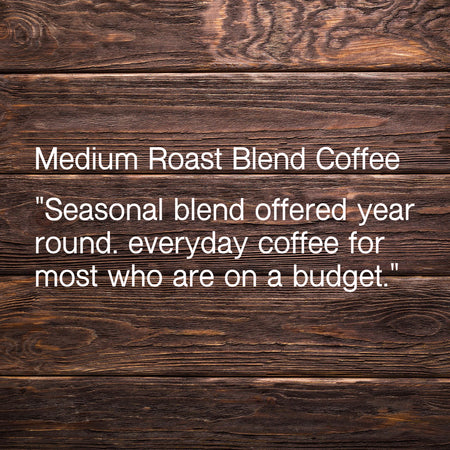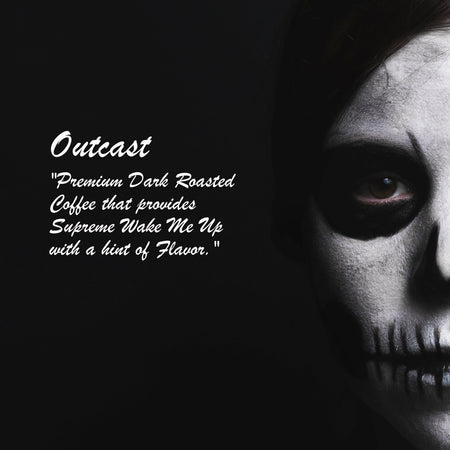In the world of specialty coffee, we often find ourselves caught in a paradox. We invest in premium beans that cost $20, $30, or even $40 per bag, yet we approach our brewing experiments with the same heavy-handed dosing we'd use for everyday coffee. What if there was a better way to explore these precious beans without burning through your supply in a few short brewing sessions?
The answer lies in embracing small-batch brewing - a technique that challenges the conventional wisdom of standard 15-20 gram doses and opens up an entirely new dimension of coffee exploration. Through extensive testing with various brewing methods, a fascinating discovery emerges: you can create exceptional coffee experiences using doses as small as 5 grams without sacrificing flavor quality or brewing precision.
The Science Behind Small-Dose Success
The key to successful small-batch brewing lies in understanding concentration and extraction dynamics. When working with smaller doses, the coffee-to-water ratio becomes more critical, but the payoff is remarkable. A well-executed 5-gram brew can rival the complexity and satisfaction of its larger counterparts while offering unprecedented flexibility for experimentation.
The concentrated brewing environment created by smaller doses ensures that every ground particle gets optimal saturation. This tight packing creates a more uniform extraction, leading to cleaner, more defined flavor profiles. The fast drainage characteristic of small-batch brewing prevents over-extraction while maintaining the full spectrum of desirable coffee compounds.
The Economics of Coffee Conservation
For the dedicated coffee enthusiast, the financial benefits of small-batch brewing are impossible to ignore. Consider this scenario: you've just received a limited-edition single-origin coffee that costs $35 for a 12-ounce bag. Using traditional 20-gram doses, you have approximately 17 brewing opportunities to dial in your recipe and enjoy the coffee. With 5-gram doses, that number jumps to nearly 70 opportunities.
This dramatic increase in brewing sessions means you can:
- Experiment with multiple variables without fear of waste
- Take time to truly understand the coffee's characteristics
- Share meaningful tastings with friends and fellow coffee lovers
- Extend the life of expensive coffees significantly
Mastering the Small-Batch Technique
The technique for small-batch brewing requires precision and mindfulness, but the learning curve is surprisingly gentle. The key principles remain the same as larger brewing methods: proper grind size, water temperature, and timing. However, the margin for error becomes more forgiving due to the concentrated brewing environment.
Pour technique becomes simplified in small-batch brewing. There's no need for complex pouring patterns or elaborate bloom sequences. A simple center pour approach works exceptionally well, allowing the concentrated grounds to create their own optimal flow patterns. The brewing process becomes more intuitive and less dependent on perfect execution.
Understanding Your Coffee Better
One of the most compelling advantages of small-batch brewing is how it accelerates your understanding of any given coffee. Instead of committing large amounts of precious beans to each experiment, you can quickly iterate through different variables - grind size adjustments, water temperature changes, or timing modifications - using minimal coffee with each attempt.
This rapid iteration process leads to faster calibration and deeper comprehension of how specific beans respond to different brewing parameters. You'll find yourself developing a more nuanced palate and a better understanding of extraction principles that will improve all your coffee brewing, regardless of batch size.
The Full-Bodied Surprise
Contrary to what you might expect, small-batch brewing often produces coffee with remarkable body and richness. The concentrated brewing environment seems to extract oils and compounds in a way that creates substantial mouthfeel, even from modest doses. Many coffee enthusiasts report that their small-batch brews feel more substantial and satisfying than they anticipated.
This phenomenon challenges our preconceptions about dose size and strength. A well-executed 5-gram brew can deliver the sensory satisfaction of a much larger cup while providing the clarity and precision that smaller doses allow.
When to Embrace Small-Batch Brewing
Small-batch brewing shines in several specific scenarios. It's ideal for expensive or rare coffees where conservation is crucial. It's perfect for coffee cupping and comparison sessions where you want to taste multiple coffees without overwhelming your palate. It's excellent for beginners who want to learn without waste, and it's invaluable for experienced brewers looking to refine their technique.
The approach also works wonderfully for afternoon coffee breaks when you want a quality coffee experience without committing to a full cup. It's the perfect solution for those moments when you're craving coffee but don't want to disrupt your sleep schedule with a large dose of caffeine.
The Equipment Question
While small-batch brewing can be accomplished with various equipment, some tools are better suited to this approach than others. The ideal small-batch brewer should have a concentrated brewing chamber that ensures proper saturation of the small dose. It should drain cleanly without clogging, and it should be designed to accommodate the unique flow characteristics of smaller amounts of coffee.
The investment in specialized small-batch brewing equipment pays dividends through coffee savings alone. When you consider the cost of wasted coffee from failed brewing experiments, a dedicated small-batch brewer quickly justifies its price through conservation benefits.
Making the Mental Shift
Perhaps the biggest challenge in adopting small-batch brewing is overcoming our psychological attachment to "full" cups of coffee. We're conditioned to think that more coffee means better coffee, but small-batch brewing teaches us that concentration and quality often matter more than volume.
This mental shift opens up new possibilities for how we think about coffee consumption. Instead of viewing coffee as a volume-based beverage, we begin to appreciate it as a concentrated flavor experience. This perspective aligns better with how we approach other luxury consumables like fine wine or artisanal chocolate.
The Future of Coffee Exploration
Small-batch brewing represents a more thoughtful, sustainable approach to coffee exploration. It allows serious coffee enthusiasts to engage deeply with their beans without the financial pressure of rapid consumption. It promotes experimentation and learning while respecting the value of quality coffee.
As specialty coffee continues to evolve and become more expensive, techniques like small-batch brewing will become increasingly relevant. They offer a path forward that maintains accessibility and exploration while acknowledging the premium nature of exceptional coffee.
For the curious coffee lover looking to deepen their brewing knowledge, expand their palate, and make their coffee budget stretch further, small-batch brewing offers an compelling solution. It's a technique that rewards patience and precision while opening up entirely new dimensions of coffee appreciation. The journey toward mastering small-batch brewing is one that pays immediate dividends and continues to reward the practitioner long into their coffee journey.

